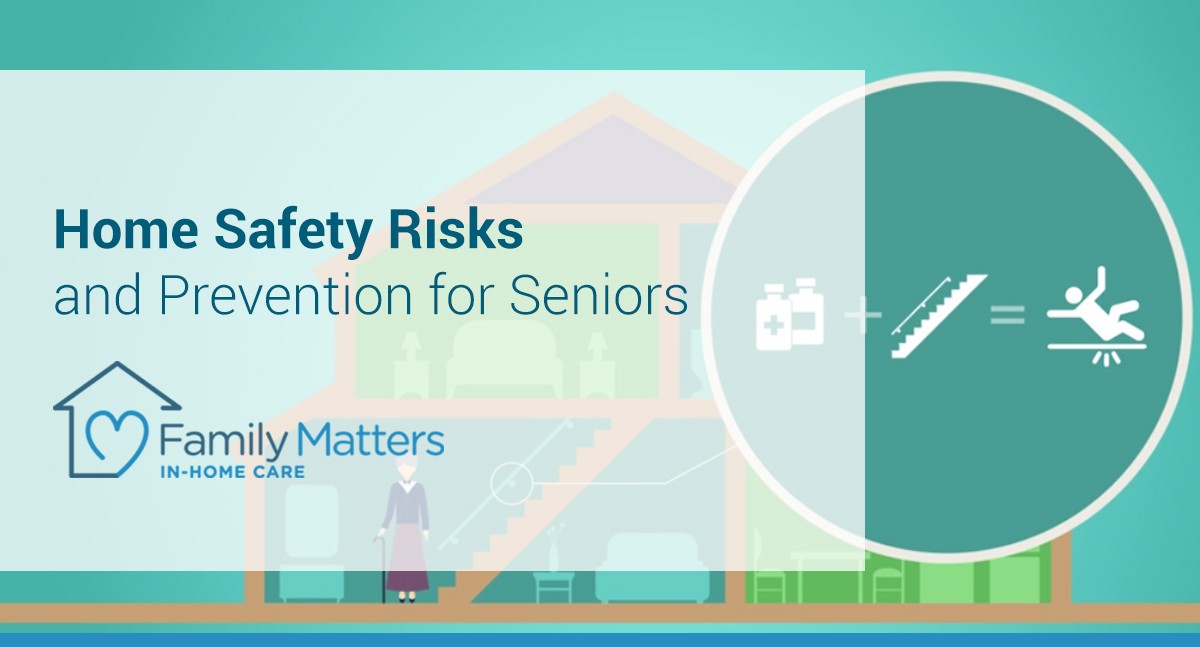
Home Safety Risks and Prevention for Seniors
Help protect your aging loved ones from hazards in their home. Learn how you can prevent accidents and injuries from occurring in the adults you love and help care for.
Falls and Injuries
In adults ages 65 and older, 1 in 3 falls each year. Once an older adult falls once, the chances double that they will fall again. (source) One in five of these falls results in a serious injury such as a head injury or broken bones.
Reduce the Risk of Falling in Your Home
- Talk with your doctor about medications and overall health to determine your risk of falling.
- Eliminate items from the home that you are likely to trip over.
- Determine if a ramp is needed in place of stairs in the home.
- Add rails to both sides of any ramp or stairway.
- Add grab bars to the inside and outside of shower and tub area in the bathroom.
- Ensure there is plenty of bright lighting in the home. Add more lighting or brighter bulbs if needed.
Choking and Suffocation
Choking on food or other objects is a primary cause of suffocation. Choking is the second leading cause of unintentional injury death in those 87 and older. Having dentures or difficulty swallowing can increase choking in the elderly.
Foods with Minimal Choking Risk
- Ground meat
- Soup
- Jello
- Pudding
- Applesauce
- Fish
- Chocolate (it will melt if it gets stuck)
Foods to Avoid to Help Prevent Choking
- Steak and other large pieces of meat
- Hard candy
- Popcorn
- White bread
- Hot dogs
- Cake and milk
- Dry crackers
- Chicken with bones
Poison
Preventing loved ones from ingesting toxic substances in the home isn’t just child’s play. Older adults can also be at risk of poison. Prescription drug overdose is the leading cause of deaths by poison.
Prevent Poisoning In Your Elderly
- Get the home tested to see if there is a risk of radon gas exposure.
- Make sure battery-operated or battery backup carbon monoxide detectors are installed. Check or replace the batteries when the time change occurs every spring and fall.
- Administer medications or use pill boxes so medications are not taken more than necessary.
Caregivers can talk about home safety with clients and their families. Caregivers can work to create a safety plan with their client that outlines home safety risks and prevention tips. This allows everyone to be proactive in creating a safer home environment.
For more information or to schedule a free consultation, contact Family Matters In-Home Care to see how we can help support your family.
 This post is courtesy of ClearCare, an all-encompassing web-based solution, empowering private-duty home care agencies to operate efficiently and grow while solving one of the biggest healthcare and economic challenges of our time.
This post is courtesy of ClearCare, an all-encompassing web-based solution, empowering private-duty home care agencies to operate efficiently and grow while solving one of the biggest healthcare and economic challenges of our time.
